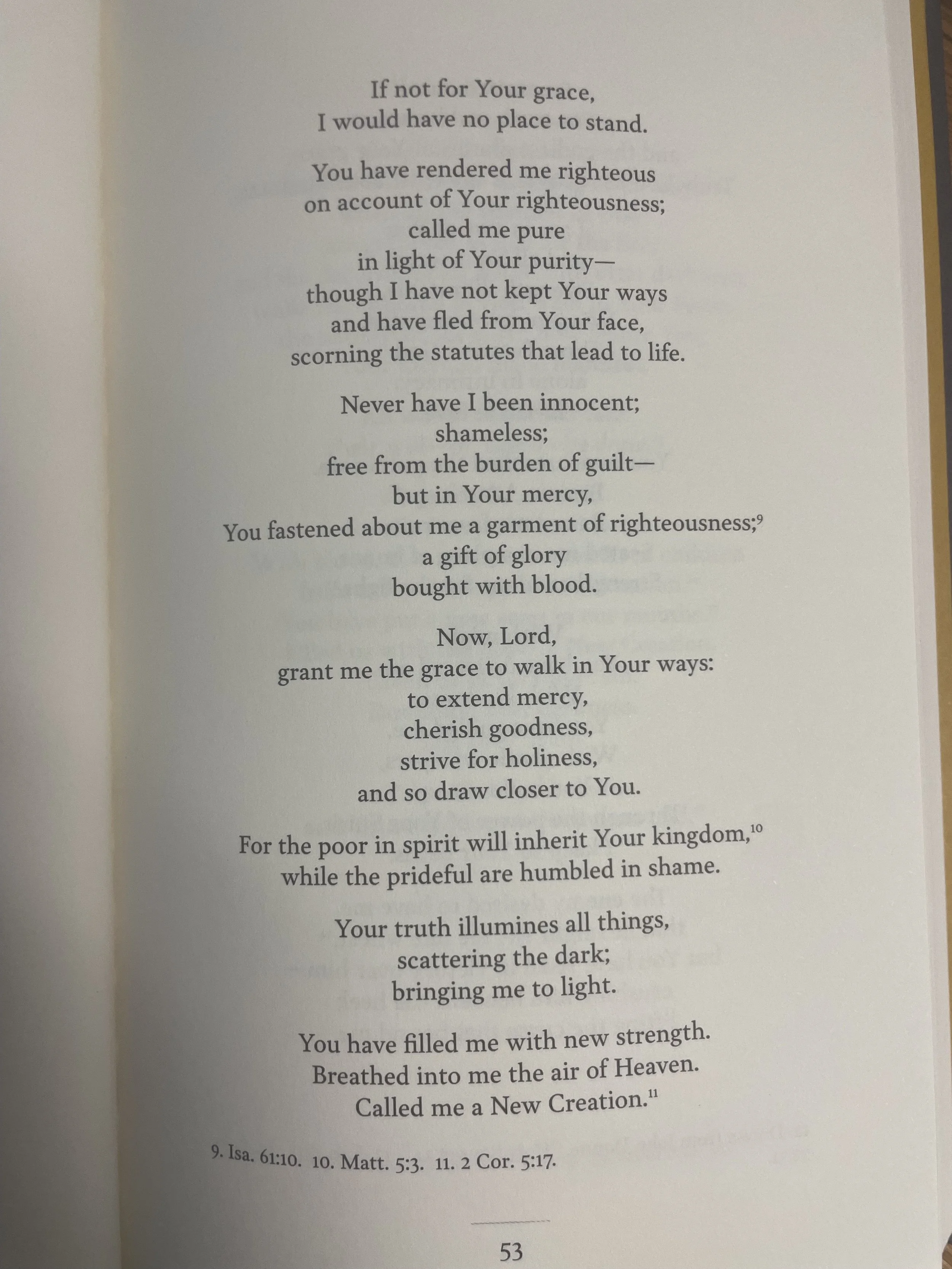This weeks devotion is entitled” A Longer Stride and Larger Embrace” and is written by Eugene Peterson. It is an excerpt from his book, Leap Over the Wall. We hope this devotion encourages your faith.
A LONGER STRIDE AND A LARGER EMBRACE
In wrapping up the story of the capture of Jerusalem and its establishment as the City of David, 2 Samuel offers this wonderful phrase: "And David became greater and greater, for the LORD, the God of hosts, was with him" (2 Sam. 5:10). Another way to translate the Hebrew phrase halok 'gado/ is that David proceeded from that moment with "a longer stride and a larger embrace."
The phrase "greater and greater" signals David's maturity. The David story isn't a mere accumulation of incidents, one after the other, isolated anecdotes shaped by whatever circumstances prevailed at the time. No, it's a story of growth, each detail of the story assimilated into the next, David more David now than ever. This doesn't always happen, of course-either to David or to us. In fact, it sometimes seems that it doesn't happen very often. Change can diminish us; it can cut us off from our roots; it can panic us so that we abandon our past. Why is it that so many look back on childhood and youth as the best years? Why do so many try to perpetuate the infantile and the adolescent in their bodies and dress and actions?
But change can also be a catalyst for growth. It can stimulate developing, deepening, lengthening, enlarging our lives becoming more, not less. And that's what the narrator calls attention to in David at this moment. Not David embittered by the long hostility of Saul; not David narrowed into an obsessive paranoia against the Philistines; not David reduced to a compulsive regard for his own interests; not David lazily living off the reputation of his youthful achievements; not David sidetracked into wilderness love affairs. No. Rather, all that conflict and hostility, all those blessings and wonders, all that hate and love metabolized into a holy life, a life robust in God and prayer and obedience. He lengthened his stride; he enlarged his embrace.
He lengthened his stride. He did the unexpected when he took Jerusalem. This was avoided territory. No one else ventured into this den of superstition and ghost stories. Nobody had seen Jerusalem as a strategic site. But David did. He also saw the evil parodies of his faith and the cruel mockeries of the disabled as a blemish on the landscape of the promised land, the holy land. In indignation he took a giant step into Jerusalem and destroyed the caricatures of his ancestors Jacob and Isaac rigged up on the walls of Jerusalem. Instead of mincing around these abominations, David confronted them. As often happens, the very thing that reduces immaturity to neurotic timidity is exposed by maturity as Wizard-of-Oz fakery.
And David enlarged his embrace. He included more and more people under his rule and in his love. He gathered all God's children, not just those who had been on his side, helping him out through the difficult years. Maturity translated into generosity, into reaching out to make peace with the northern tribes. David didn't use his newly acquired strength and authority to destroy or denigrate others. He gathered and integrated and led.
When we grow, in contrast to merely change, we venture into new territory and include more people in our lives serve more and love more. Our culture is filled with change; it's poor in growth. New things, models, developments, opportunities are announced, breathlessly, every hour. But instead of becoming ingredients in a long and wise growth, they simply replace. The previous is discarded and the immediate stuck in--until, bored by the novelty, we run after the next fad. Men and women drawn always to the new never grow up. God's way is growth, not change. Organic is a key image. Nothing from our past is thrown out with the garbage; it's all composted and assimilated into a growing life. And nothing--no "moral," no "principle"- is tacked on from the outside. David at thirty-seven was more than he was at seventeen-more praise, saner counsel, deeper love. More himself. More his God-given and God-glorifying humanity. A longer stride, a larger embrace.
Resources:
Commentary Article: 2 Samuel 5:1-5 - Interpretation, a Bible Commentary







